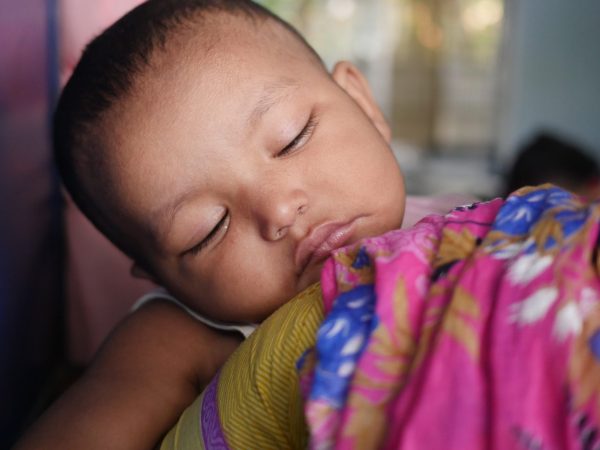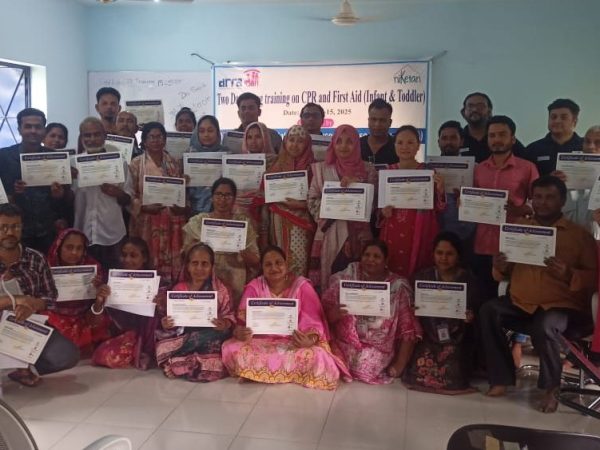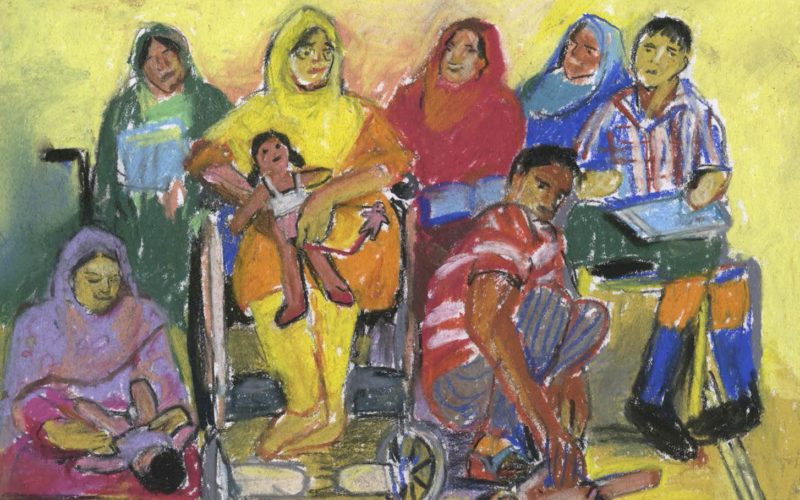News SRHR education at special schools in Bangladesh
A 14-year-old girl from Bangladesh with mental and hearing disabilities tells her story, agitated but smilingly. She uses dolls – often used in sexual education – to better explain what she means by pointing at specific body parts. She has been touched and abused twice by a boy who lives nearby in her village. Another girl, with autism, reveals that her father sleeps with her, fondles her breasts and has sexual intercourse with her.
In conversations with twenty girls with disabilities before Niketan’s Right to decide-programme, eighteen girls shared negative sexual experiences. Two themes return: firstly, the young girls do not really grasp the offensiveness of the sexual abuse, and secondly, their families and the village communities blame the girls for those acts rather than considering them as victims.
Niketan Foundation helps youngsters with disabilities to remove barriers for their participation in society and to create equal opportunities. Niketan supports early childhood programmes, special schools, vocational training centres, community based rehabilitation programmes and a residential place for children and youngsters with complex disabilities.
The practice: breaking taboos about sexuality among disability-experts
To empower youngsters with a complex (intellectual) disability and teach them about their sexual and reproductive health, Niketan started in 2017 with the course ‘It’s my body!’. The course was meant for youngsters in the calendar age of 13 to 25 and includes subjects such as knowing your own body, personal hygiene, social relations, friendship and abuse.
Step one: training teachers of special schools on SRHR
We partnered with the SRHR-organisation Rutgers Foundation to develop the training outline and toolkit. Before, Rutgers had already trained local SRHR-consultants. Niketan could use their expertise again. These consultants in turn ‘trained the trainers’: teachers and confidences of the target group – disability-experts at the grassroots level already having a close (working) relationship with the youngsters.
The Training of Trainers (ToT) focused on the existing psychological, social and cultural barriers leading to the negation of the rights, privileges and liberties surrounding the sexual life of people with multiple disabilities. Thereby, it was a challenge that in Bangladesh, sexuality in itself is a taboo to openly talk about.
To break this taboo about sexuality – regarding people with and without disabilities – we started our journey on this issue already in 2013. We tried to bring teachers, management and caregivers working at special schools together to talk about sexuality and disability. In the first meetings, the participants were too shy or just reluctant to talk. Slowly they got used to the idea and meetings with parents of youngsters with a disability convinced them that we could not close our eyes for this specific subject.
The 8-day training in 2016 was an eye-opener for the trainees. For them to be able to teach the youngsters with a disability about sexuality, they first needed to learn how to openly share their own thoughts, experiences and beliefs on sexuality. Their value was based on myths and beliefs, which were reflected in their attitude. Breaking this and teaching them rights-based values was the biggest challenge. Eventually though, all trainees were grateful and relieved to be able to talk about this topic, that they never had spoken about it before. There were now equipped to start teaching their students with sometimes complex or multiple (intellectual) disabilities.
Step two: SRHR at special schools for youngsters with disabilities
The pilot course ‘It’s my body’ was targeted at twenty female and twelve male youngsters with mostly intellectual disabilities on special schools in three cities. The course methodology was specifically tailored at the level of the students. Using a family of instruction dolls and posters depicting the development of a body, were some of the components.
Attentively and eagerly the youngsters listen to the trainer. Sometimes they cannot avoid some giggling but they are not afraid anymore to participate in the discussions. The safe and supportive surrounding with sign and body language as supportive communication helps the students to open up. Openly they use the names of the private parts that in the past they only referred to as ‘there below’.
Lessons learnt: a balancing act
Both teachers and youngsters with disabilities showed an eagerness to learn more and to share the lessons with their families. The teachers have dramatically changed their attitude: one year before the programme, the subject was still strictly taboo and today they teach the class without embarrassment and speak with a certain confidence about reproductive health and rights. The youngsters now know about their private body parts, learnt about relationships and sex, and know how to set boundaries (it’s my body!). The benefits of the course were not limited to these youngsters themselves, but transcended to their family members as well.
Breaking taboos while keeping parents on track
We experienced two major challenges along the way. The first is the deeply rooted taboo around sexuality in Bangladesh, let alone for young children. Although sexual education would benefit children with and without disabilities under the age of 13 as well, this is not (yet) accepted in Bangladesh. This translated into the difficulty of using posters depicting naked bodies and private parts. We had to balance between breaking taboos and keeping parents on track. For their consent, we had to make sure images were not too explicit. Eventually we agreed on using drawings of naked bodies, because it was the only way our target group would understand.
Tailoring communication to people with (severe) intellectual disabilities
The biggest challenge remains customising the information to fit the targeted youngsters with often complex (intellectual) disabilities who attend the special schools. The risk for confusion or misinterpretation, possibly resulting in problematic sexual behaviour, remains a subject of constant concern. It thus requires positive and clear feedback on desirable behaviour. For example, telling youngsters in a ‘negative’ way that masturbation is not allowed in public might be problematic for youngsters with (severe) intellectual disabilities, who often do not understand the word ‘not’. They might understand ‘masturbation is allowed in public. Recommendable would be to tell them that they can masturbate in their bathroom or bedroom.
The whole exercise feels like a balancing act. Niketan is strongly aware of the need to continuously monitor and evaluate the impact of the course with the assistance of our external local and international SHRH-consultants, during the training but also after completion of the course.



